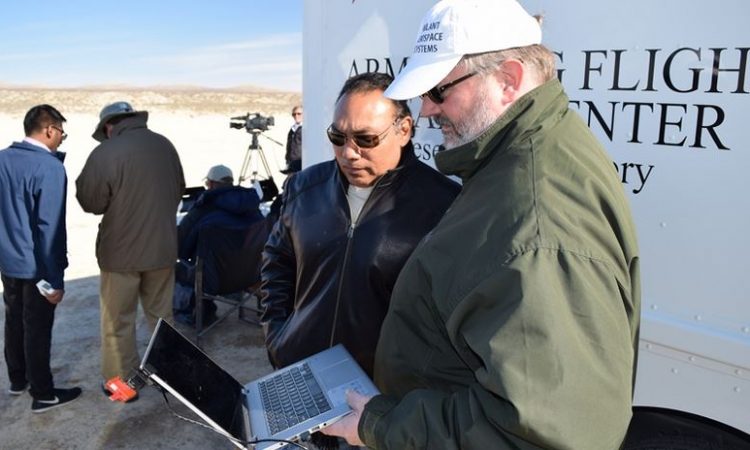The winning technology was invented by NASA Senior Research Engineer Ricardo Arteaga working with a team at NASA Armstrong Flight Research Center in Edwards, California. The resulting patents were licensed to Vigilant Aerospace Systems, Inc. of Oklahoma City and Fargo, ND and form the basis for the company’s FlightHorizon commercial products.
The invention provides a method for uncrewed aircraft systems (UAS) to automatically detect and avoid other air traffic, which is a critical safety function for the advancement of the UAS industry and the future of autonomous aviation.
Vigilant Aerospace Systems describe FlightHorizon as a detect-and-avoid and airspace management software that fuses data from aircraft transponders, radar, drone autopilots and live FAA data to create a single picture of the airspace around a drone. The software displays air traffic, predicts trajectories and provides avoidance maneuvers to the UAS pilot or autopilot. The system can be used on the ground or onboard the UAS and can be configured for any size of aircraft. It is designed to meet industry technical standards and to help UAS operators to fly beyond visual line-of-sight (BVLOS) under waivers or new FAA BVLOS rules.
The technology is described by NASA in the announcement as:
“Uncrewed, remotely piloted aircraft – called unmanned aircraft systems, or UAS – have their own set of challenges to overcome when designing a safe flight path… NASA collision-avoidance technology combines algorithms, sensors, and software integrated on UAS. It offers improved traffic situational awareness, real-time weather monitoring, and navigation – all designed for the short-range trajectories most often used by UAS. The algorithm can automatically avoid collisions and route the aircraft back on its previous course once the potential collision is well clear… The technology has been licensed by a private company, Vigilant Aerospace Systems, which has used it to provide detect-and-avoid and airspace management solutions to two [FAA] Unmanned Aircraft Integration Pilot Programs.”
“NASA collision-avoidance technology combines algorithms, sensors, and software integrated on UAS. It offers improved traffic situational awareness, real-time weather monitoring, and navigation – all designed for the short-range trajectories most often used by UAS. The algorithm can automatically avoid collisions and route the aircraft back on its previous course once the potential collision is well clear…”
Further information




